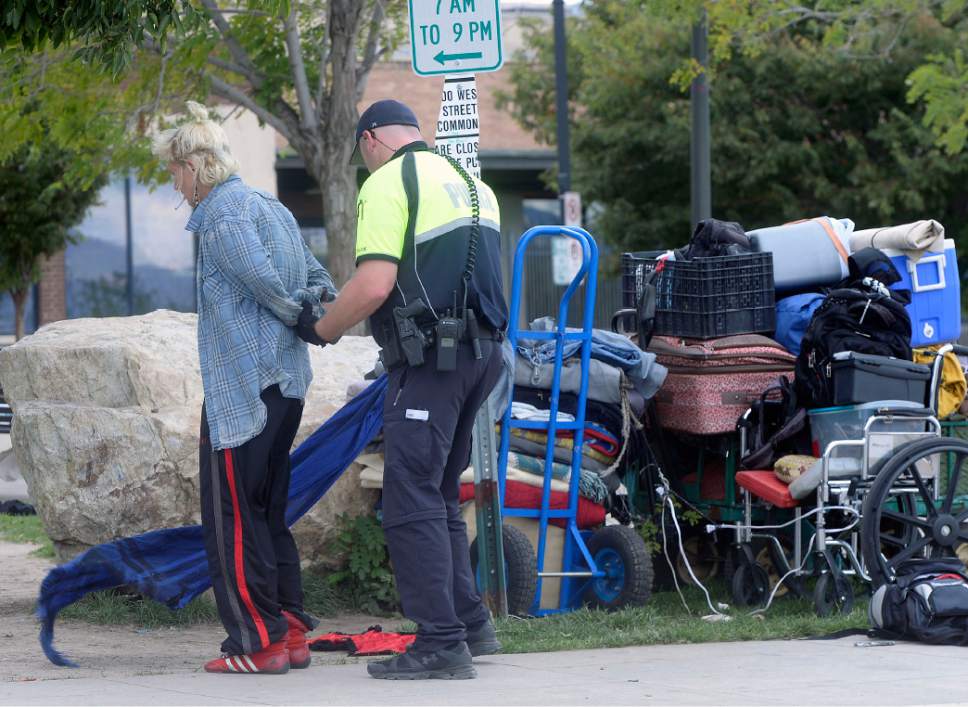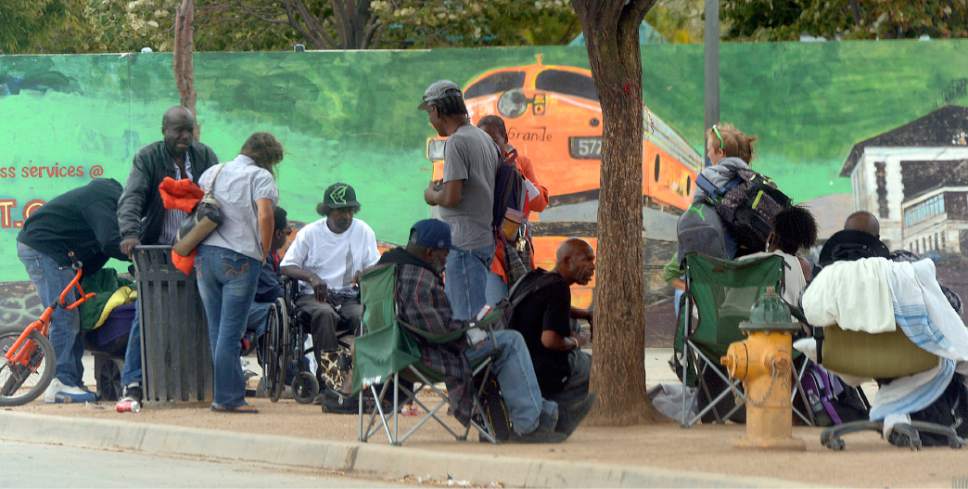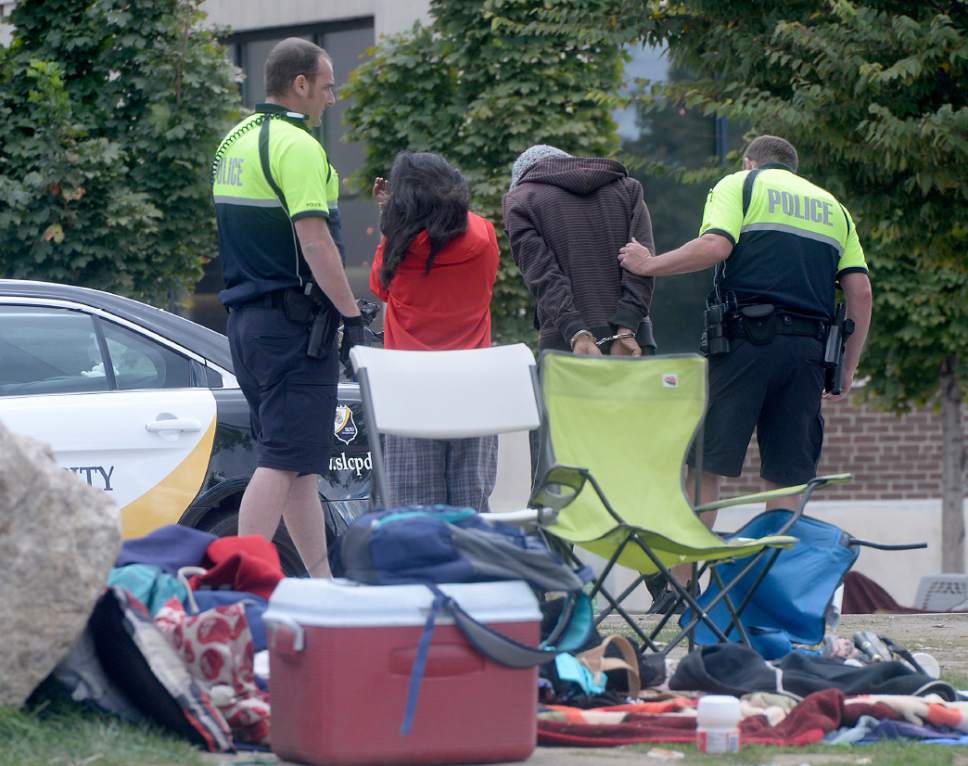This is an archived article that was published on sltrib.com in 2016, and information in the article may be outdated. It is provided only for personal research purposes and may not be reprinted.
Four days after police arrested 49 people in "Operation Diversion," Salt Lake City officials are calling the effort to reduce crime in the Rio Grande neighborhood a qualified success. And they were ready for a second targeted police raid, which got underway late Monday.
The number of people hanging out in the area between 200 South and 400 South west of the Rio Grande depot was much diminished in the past few days — a contrast to recent weeks and months that saw a growing number of homeless people camping and congregating there, leading to an upswing in violence.
Only individuals with outstanding warrants were arrested, along with those who were seen committing crimes during the operation, said Sgt. Brandon Shearer, quick to point out the operations were not sweeps
Most of those taken into custody were evaluated next to Salt Lake City police headquarters, at an empty bank building, where they were given legal representation and could interact with social service agencies. From the first police action Thursday, 12 went to jail, 30 went to treatment programs and two were taken to an area hospital to receive medical attention. Five others who were not evaluated went directly to jail. Since then, at least 10 of the 30 in treatment have left the program and will face charges.
"It's not a one-time fix," Shearer said. "It's something we will continue to evaluate and put resources where we need to solve the problem."
City officials plan to give an update on the second coordinated raid targeting people with active warrants early Tuesday.
Although hundreds of people have been hanging out just west and south of the Road Home shelter, Shearer said officers who regularly work the area can identify those who had warrants issued against them.
Extra space for the operations was made available at Salt Lake County jail by Sheriff Jim Winder. Before Thursday, officers could not arrest on warrants for less than felony charges because jail space is at a premium.
The unusual police actions are in part spurred by the business community that has called the situation a "crisis" that was "out of control."
On Monday, Jason Mathis, executive director of the Downtown Alliance business group, called Operation Diversion a good start.
"I'm very happy about the progress so far and the dedicated effort," he said. "But I think we're just beginning to root out the criminal element from the homeless population."
People need to know, if they are coming downtown to sell or buy drugs, there will be consequences, Mathis said.
A spokesman for Mayor Jackie Biskupski said City Hall is "cautiously optimistic" about the operation.
"The mayor has said that Operation Diversion is not a one-time thing," said Matthew Rojas. "The intent is not to arrest homeless people, but to take action against the criminal element."
The plan is to divert people with mental-health or drug-related issues from jail to treatment, hoping they won't return to camp in the Rio Grande neighborhood.
"Jail is the last place you want for an addict or someone who is mentally ill," Rojas said.
Operation Diversion is funded by $150,000 from the city and $1.2 million from the county. The money will pay for six months of intensive drug treatment for some 150 people and at least 18 months of criminal prosecutions led by Salt Lake County District Attorney Office.
Individuals will be tracked to determine the success of the program. If deemed a success, local leaders will seek funding from the Legislature, including a portion of a modest expansion of Medicaid that is still being vetted by the federal government.







